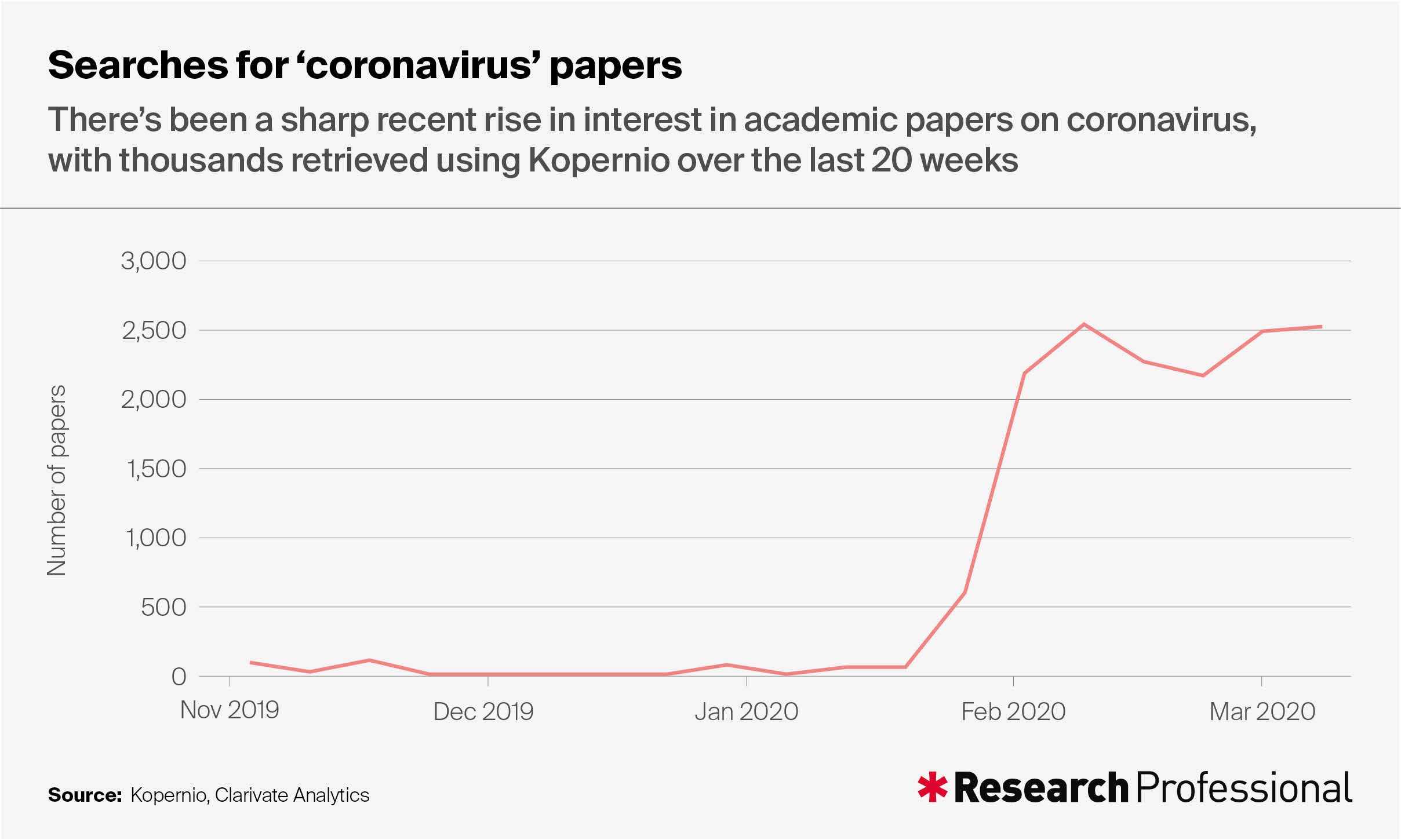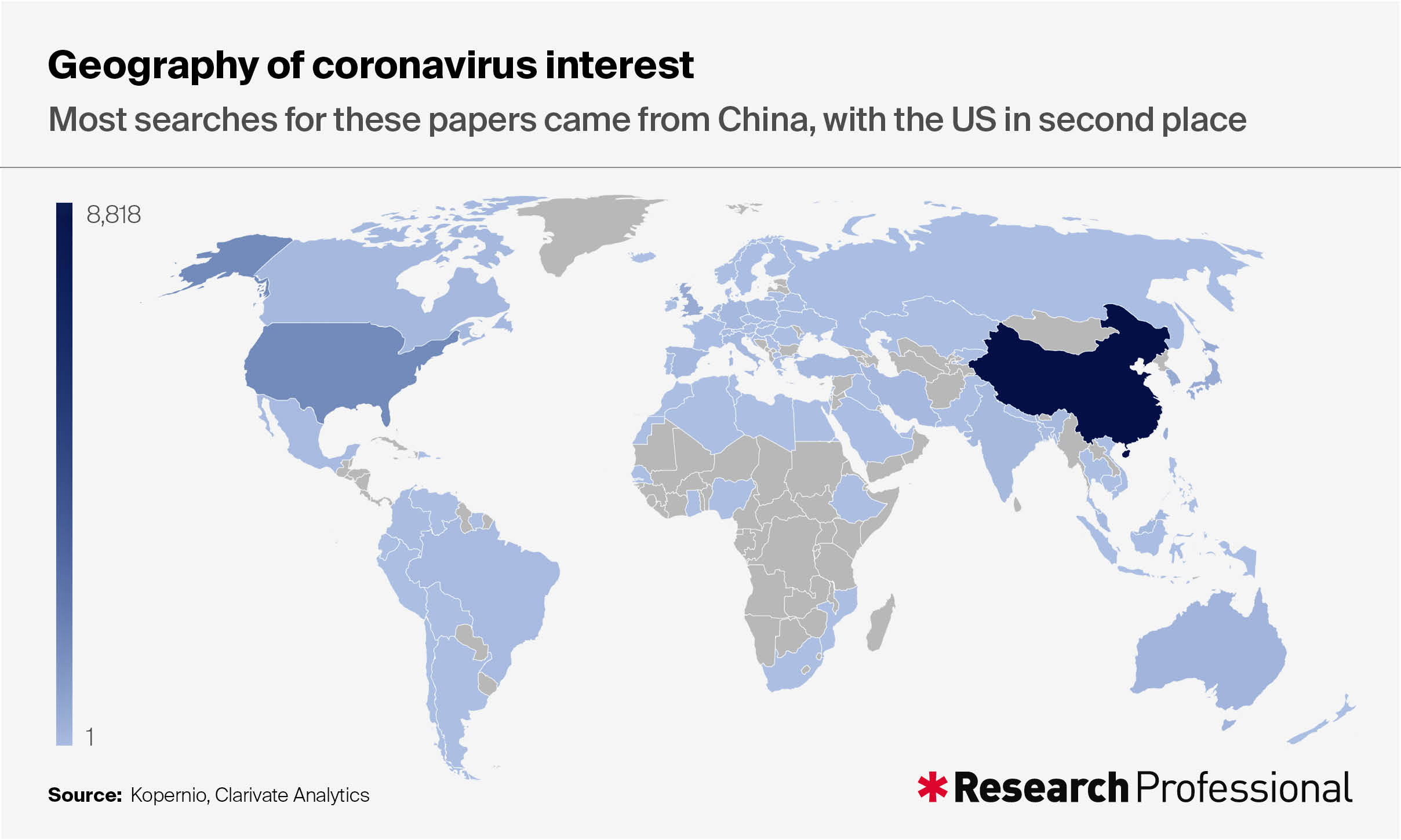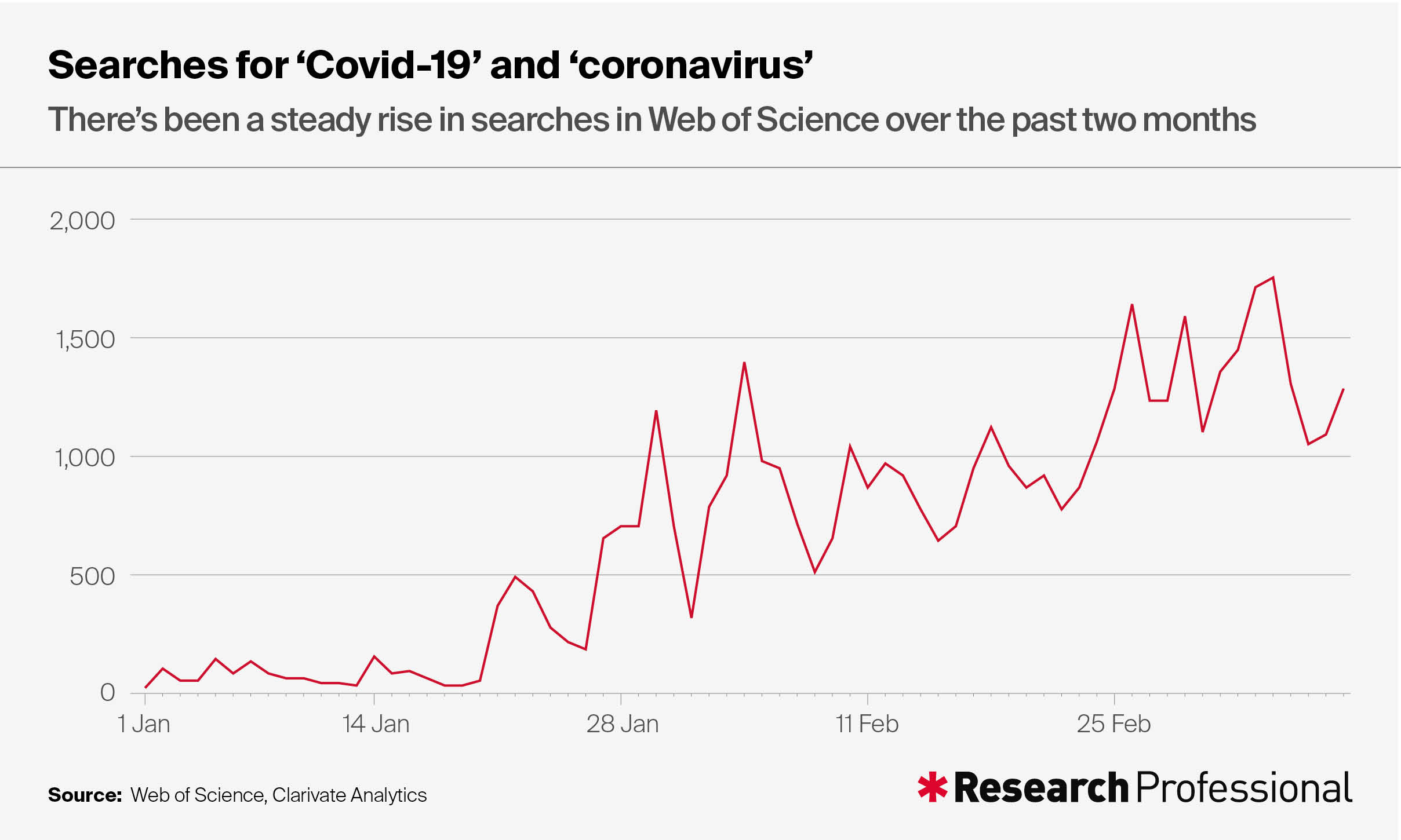
Analysis for Research Professional News reveals trends in academic searches for Covid-19
A new analysis of academic search trends, carried out for Research Professional News, reveals a sudden recent surge of interest in papers on coronavirus since the outbreak of the Covid-19 respiratory disease caused by one such virus.
Most of the interest for ‘coronavirus’ papers came from China initially and then from the United States, according to the analysis, which was carried out by the company Clarivate Analytics using its Kopernio platform and identified a total of 6,552 relevant papers.

“These papers span all journals, all geographies, all publishers, and could have been published at any time,” said Amy Bourke-Waite, external communications director for the Web of Science Group at Clarivate Analytics. “This will necessarily contain the very few pieces of research related to the Covid-19 strain, as well as older strains which are still relevant for researchers looking into the virus.”
“We can’t assume that all of the users retrieving these papers are academics working in a relevant field, but it does clearly show a massive uptick in interest among the academic community, just as things started to get more serious,” she said.

It is early days yet to see how many extra papers on coronavirus are being published because of the Covid-19 pandemic, says Bourke-Waite.
“In terms of the latest Covid-19 strain, people haven’t yet had a chance to get funding for research and to publish their articles,” she said. “The research lifecycle takes too long for that. There are six articles on Covid-19 in the Web of Science Core Collection, which are listed on our free coronavirus resource center which is regularly updated.”

Previous disease outbreaks, such as SARS in 2002 and MERS in 2012-13, have also produced periods of sudden interest in coronavirus research and resulting publications, interspersed by quiet periods.
“We have gone through these cycles over and over again,” Vineet Menachery, who studies coronaviruses at the University of Texas Medical Branch in Galveston, told STAT news website. He added, “It may be that this coronavirus establishes coronaviruses [as a research field] a little bit more.”
About one-third of all papers on coronaviruses published between 2002 and 2020 were from scientists in the US, and another quarter were written by researchers in China, according to a separate analysis for STAT.
But as scientists have rushed to understand Covid-19, there has also been a surge in submissions of papers on the topic to journals. This has, in turn, led to a rush in requests for peer review, with some experts going from conducting just a few reviews a year to several a week, according to The Scientist media website.
The pre-print servers bioRxiv and medRxiv list more than 610 coronavirus papers in total, indicating that many more papers on the topic are yet to be peer reviewed.
With so many papers being submitted, fears have emerged that experts do not have enough capacity to review them all, and that people with no experience in coronaviruses are reviewing papers, increasing the risk of missing errors and of spreading inaccurate information.
“There’s no question we’ve seen a lot of rushed studies. People who are doing the minimum they can to get something published,” Stanley Perlman, a microbiologist at the University of Iowa who studies coronaviruses, told The Scientist.
Another cause of concern, highlighted in an editorial from the Journal of the American Medical Association, is that some of the papers describe the same patients without disclosing that information. “This is of concern and may represent a lapse in ethical standards of scientific reporting,” the journal’s editors said, adding that since 1 January, they have received “hundreds of manuscripts and direct queries related to coronavirus disease 2019”.